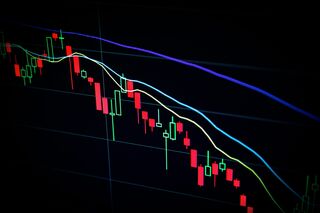Relationships
How GameStop Demonstrates the Phenomenon of Ideological Investing
Financial decisions can allow people to express their values and relationships.
Posted February 1, 2021 Reviewed by Lybi Ma
Key Takeaway: The wild price swings in GameStop's stock reveal a novel motivation for investing, called “ideological investing.” The companies that people choose to support can signal their identity; in the case of GameStop, an investment can showcase values of altruism and community, as well as opposition to adversaries such as Wall Street and economic inequality.
"This is easily one of the greatest things to happen during our lives." – Redditor shorgarr on wallstreetbets.
"I own GameStop because I AM GameStop. I am choosing to invest in my generation, and selling would be selling myself out." – Redditor lonickoil, on wallstreetbets.
"I liken this week's events to going on a protest – but one you make using your computer. It's the most exciting thing to happen in a long time and I feel like we're on the verge of toppling Wall Street." – Emma Rivers, GameStop stock investor.
Something truly remarkable has been happening over the past few weeks. There's a ferocious ideological war going on in which many of us may be involved without even knowing it. Instead of bombs and missiles, this war is centered around money.

On one side are the Wall Street traders and hedge funds betting that stocks of companies like GameStop, the videogame retailer, are over-priced and will go lower because the businesses are struggling and losing money because of the pandemic. The professional traders want to profit by short selling, i.e., selling borrowed shares of GameStop, to repurchase them later at a significantly lower price.
On the other side are tens of thousands of individual investors, mostly men, ganging up through the reddit online community, wallstreetbets, to buy the GameStop stock and run its price up. They are using their savings and even borrowing money to invest. Their primary purpose is to "squeeze" the short-sellers by forcing them to buy GameStop's shares at astronomically high prices to cover their short positions.
When this war ends, whichever side wins stands to collectively earn billions of dollars. The losers will suffer astronomical losses. A lot has been written about this war centered around GameStop's stock and what it means for Wall Street in the future. In this post, I want to use a social psychology lens to describe what I think is a remarkable new phenomenon. I am calling it "ideological investing" and want to describe two of its significant properties.
What is ideological investing?
Ideological investing involves investing one's money to express one's ideology and solidarity with a particular group and against the ideology's and group's adversaries. Ideological investors see buying GameStop's stock as a way to support the company and financially hurt the prominent hedge-fund managers and institutional investors who routinely exploit struggling businesses for their own gain. More broadly, many see their investment as a sign of rebellion against Wall Street and inherently unfair and corrupt capitalist institutions and practices.
The investor's personal gain or loss is inconsequential.
The more normal motivation of personal financial gain from investing money is secondary or even irrelevant for ideological investors. As an example, one Wallstreetbets member who purchased GameStop stock at a high price observed, "I went from freaking out over losing $100 in a day, to losing thousands in a day and just kinda smirking. To be honest, I planned on getting out if it hit $1000. But I'm Not Getting Out. Truthfully, I'll survive without this money if it tanks. Obviously, money would be nice, but I know some others out there probably need it more."

It is this aspect of investing that is so fascinating because it goes against the self-interest and greed that is the basis of every theory of investor financial calculus and prescription about why to invest in the stock market.
Many of these investors are also making other financial decisions related to GameStop that are altruistic and community-minded. For example, one member of the Wallstreetbets online community posted that they donated $5,000 to a Canadian charity called Sick Kids for "Video Game Consoles for Entertainment of Children being treated for Cancer – From GameStop," further clarifying that "I didn't sell any GME to fund this donation, and instead used my own cash." There are numerous other examples of Wallstreetbets members donating money to charities, performing small acts of kindness towards GameStop employees, etc.
Investing is infused with personal meaning.
Unlike other forms of investing, ideological investing is deeply meaningful to the investor. Its significance goes far beyond what the invested money (and the gains) will be able to do, as is the case with Socially Reponsible Investing. In the words of redditor reiserFSs (the "it" they are referring to is buying GameStop stock):
"It already made me burst out into tears multiple times. This is so important to me. I'm 31. Life f*cked me over, my psyche is done for due to work and my whole family was f*cked over in the 2008 crisis when the big guys stuffed their bags. I never stopped believing that a chance would eventually come where we would have our voices be heard. I'm so proud to be able to join you brothers in the biggest battle on earth."
Another redditor called lonickoi wrote, "I own GameStop because [it] represents something to me. It is the very embodiment of the millennial generation that you have left behind- a down-and-out aging retailer that you feel is no longer worth investing in. We are GameStop. We are not selling because we believe in ourselves and investing in ourselves. We want to see it succeed."
Ideological investing is fueled by online community. Without Wallstreetbets, there would be no frenzy in GameStop's stock, no attempt to save the retailer, and no concerted movement to bankrupt hedge funds shorting its stock. Of course, there's also a dark side to ideological investing that needs to be unpacked and understood. In this post, I have barely scratched this concept's surface. One thing is clear. As it evolves and affects the personal finances of millions of people, understanding and managing ideological investing will keep behavioral economists and financial decision-making researchers busy for years.




